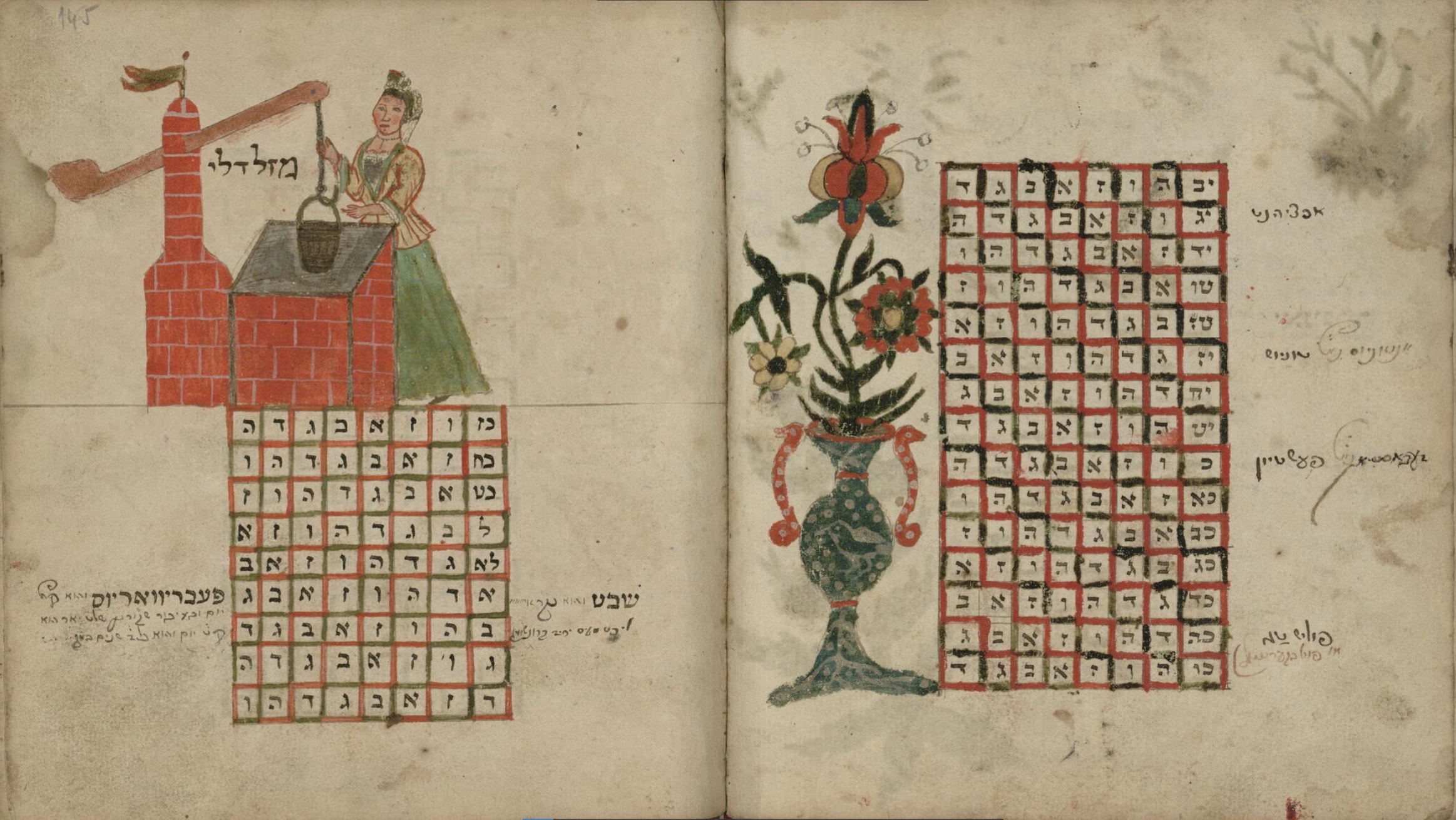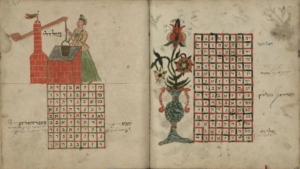This is an archive of prayers and essays written for, or relevant to, Rosh Ḥodesh Sh’vat (also ‘Shevat’), the eleventh month in the Jewish calendar.
Click here to contribute a prayer you have written or selected for Rosh Ḥodesh Sh’vat.
⤷ You are here:
🖖︎ Prayers & Praxes —⟶ 🌔︎ Prayers for the Moon, Month, and Festival Calendar —⟶ Prayers for the Moon's Renewal —⟶ Rosh Ḥodesh Shəvat (שְׁבָט) 🡄 (Previous category) :: 📁 Rosh Ḥodesh Tevet (טֵבֵת) 📁 Rosh Ḥodesh Adar (אַדָר) Alef & Bet :: (Next Category) 🡆 Rosh Ḥodesh Shəvat (שְׁבָט)This is an archive of prayers and essays written for, or relevant to, Rosh Ḥodesh Sh’vat (also ‘Shevat’), the eleventh month in the Jewish calendar. Click here to contribute a prayer you have written or selected for Rosh Ḥodesh Sh’vat. Filter resources by Collaborator Name Trisha Arlin | Hai Ben Sherira Gaon | Daniel Sperber | Kohenet Ilana Joy Streit | Unknown | Aharon N. Varady (transcription) Filter resources by Tag Aquarius | Asher | English vernacular prayer | In the merit of Moshe Rabbeinu | Mazal D'li | new moon | paraliturgical birkat haḥodesh | paraliturgical teḥinot | Prayers as poems | sap | saraf | שבת מבורכים shabbat mevorkhim | שבת שירה shabbat shirah | תחינות teḥinot | תחינות tkhines | Trees | Yiddish vernacular prayer | Zilpah | 19th century C.E. | 21st century C.E. | 57th century A.M. | 58th century A.M. Filter resources by Category Filter resources by Language Filter resources by Date Range Looking for something else? For prayers composed for Tu biShvat (Rosh ha-Shanah la-Ilanot), visit here. For table guides/haggadot for celebrating a Seder Tu biShvat, visit here. For public readings prepared for Tu biShvat, visit here. For Yom haNətiōt (Planting Day) in the State of Israel, visit here. For prayers composed for Rosh Ḥodesh in general, visit here. For public readings selected for Rosh Ḥodesh, visit here. Sorted Chronologically (old to new). Sort most recent first? To the best of my ability, this is a faithful transcription of the תְּחִנָה לְשַׁבָּת מְבָרְכִים רֹאשׁ חוֺדֶשׁ שְׁבָט (“Tkhine for Shabbat Mevorkhim Rosh Ḥodesh Shvat”) which appeared in תחנות מקרא קודש (Teḥinot Miqra Qodesh, Widow and Brothers Romm, Vilna 1877). English translation adapted slightly from Techinas: A Voice from the Heart “As Only A Woman Can Pray” by Rivka Zakutinsky (Aura Press, 1992). –A.N. Varady . . . This is the month when we tell the story Of the escape from the narrow place. This is the month of Shabbat Shirah, When we sing the song of liberation. We give thanks for freedom. This is the month when we talk of wine and nuts and fruit, The New Year of the Trees. This is the month of Tu Bishvat When we eat the gifts of our planet. We give thanks to the earth. . . . Tu Bishvat is sometimes referred to as the day in which the sap begins to rise in the trees. From where does this teaching arise? “A Tree Comes of Age” by Rabbi Dr. Sperber was originally given as a lecture on Parashat Yitro 5769/ February 14, 2009 and published on Bar-Ilan University’s Parashat Hashavua Study Center’s website, here. We have formatted the essay adding a number of the sourcetexts referred to in the lecture and all referenced citations. . . . Categories: Tags: Contributor(s): A blessing for announcing the new moon of Shevat, for Rosh Ḥodesh Shevat, and for the whole month. . . . Categories: Tags: Contributor(s):
Stable Link:
https://opensiddur.org/index.php?cat=580
Associated Image: 
Mazal for Shevat - D'li, (a/k/a Aquarius)
from Sefer Evronot (Halberstadt 1716)
by Pinchas ben Avraham Halevi (SeGaL) (This image is set to automatically show as the "featured image" in shared links on social media.)
Terms of Use:
Be a mentsch (a conscientious, considerate person) and adhere to the following guidelines:
Additional Notes:
Support this work:
The Open Siddur Project is a volunteer-driven, non-profit, non-commercial, non-denominational, non-prescriptive, gratis & libre Open Access archive of contemplative praxes, liturgical readings, and Jewish prayer literature (historic and contemporary, familiar and obscure) composed in every era, region, and language Jews have ever prayed. Our goal is to provide a platform for sharing open-source resources, tools, and content for individuals and communities crafting their own prayerbook (siddur). Through this we hope to empower personal autonomy, preserve customs, and foster creativity in religious culture.
ויהי נעם אדני אלהינו עלינו ומעשה ידינו כוננה עלינו ומעשה ידינו כוננהו "May the pleasantness of אדֹני our elo’ah be upon us; may our handiwork be established for us — our handiwork, may it be established." –Psalms 90:17
| ||
Sign up for a summary of new resources shared by contributors each week
  |
